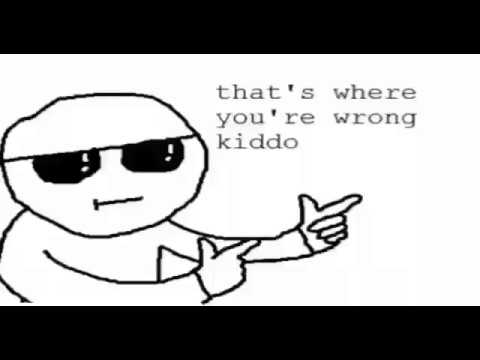TwoPiece wrote:Merlebird wrote:I for one am immensely grateful we have this internet rando to tell the entire rest of the English-speaking diaspora which words are "real"
buddy that ain't how languages work and you know it
Actually, it is. English is a defined language. Slang is not proper English. Therefor, slang words are not English words. They're fake. I don't decide this, but I can certainly tell you what is and is not real English.
You can make up all of the pretend words you want. They're still not English/American-English. That's how language works (not just English, either).
You can't type "hkjab.sdlbvfliqyerv/'[[]prekqgkj" and say, "it's C++". Again, you'd be incorrect.
Wow. Okay. I have zero expectation that anything I'm about to say will move the needle on what is clearly a value judgment for you, but for the benefit of others reading I feel obligated to point out that what you've just said is entirely,
fractally wrong.
TwoPiece wrote:English is a defined language.
Anything you could mean by this is either unsupportive of the point you're trying to make or just factually untrue. English is "defined" in the sense that it is a natural language generally recognized as distinct from and mutually unintelligible with closely related languages (e.g. Flemish). It is
not "defined" in the sense that there is a governing council or preeminent authority that sanctions neologisms for use in official or semiofficial contexts, as, say, the
Académie française does (or attempts to do) for French. Even if such a body
did exist for English, though:
TwoPiece wrote:Slang is not proper English. Therefore, slang words are not English words. They're fake.
Willfully or otherwise, you're conflating Standard American English - a social and political construction dictated by hegemonic authorities (e.g. academia, the government, the press) - with English, which is a natural language actively and collaboratively constructed and reconstructed by the entirety of its speakers. In a UK context, where "received pronunciation" and other linguistic standards for broadcasting purposes are deliberately modeled after the way the reigning monarch speaks, this would be equivalent to saying "shit" is a fake word because the queen doesn't use it.
TwoPiece wrote:You can make up all of the pretend words you want. They're still not English/American-English. That's how language works (not just English, either).
If I coin a word and use it when speaking English, and other English speakers acquire the word from me and use it in their own speech, and other English speakers acquire it from
them and so on until a statistically significant proportion of native speakers understand it as a word that exists in English,
that is literally exactly how language works. You wrote your post on a "computer," or a "cellphone," connected to the "internet." Where do you think those words came from, exactly? Where do you think
any words come from? Did you imagine God attended Adam in the Garden of Eden and handed him a Speak 'n' Spell?
TwoPiece wrote:You can't type "hkjab.sdlbvfliqyerv/'[[]prekqgkj" and say, "it's C++". Again, you'd be incorrect.
C++ is a synthetic, computational language built to interpret a limited, predefined set of commands. The reason you can't type "hkjab.sdlbvfliqyerv/'[[]prekqgkj" into a C++ compiler and expect it to run is the same reason you can't ask your desk calculator what you should have for breakfast: it hasn't been programmed to receive and interpret input of that type. Humans are (for the time being and for the foreseeable future) much better at natural language processing than adding machines, which is why, when I said "that ain't how languages work" - a clause that incorporates an infamous exemplar of "improper" English! - you were able to respond (sort of) appropriately, instead of throwing a fatal error and having to be rebooted.
Bonus round: all of this was in "support" of your thesis:
TwoPiece wrote:"backronyms" are based off WORDS. If "bae" is not a real word then "BAE" cannot be a "backronym" (which is also not a real word).
As BaconWise pointed out, if being in the
Oxford English Dictionary isn't sufficient to convince you that
bae and
backronym are "real" English words, then it's difficult to imagine what external authority you
are referencing in making these determinations. Cite your sources or gtfo.

